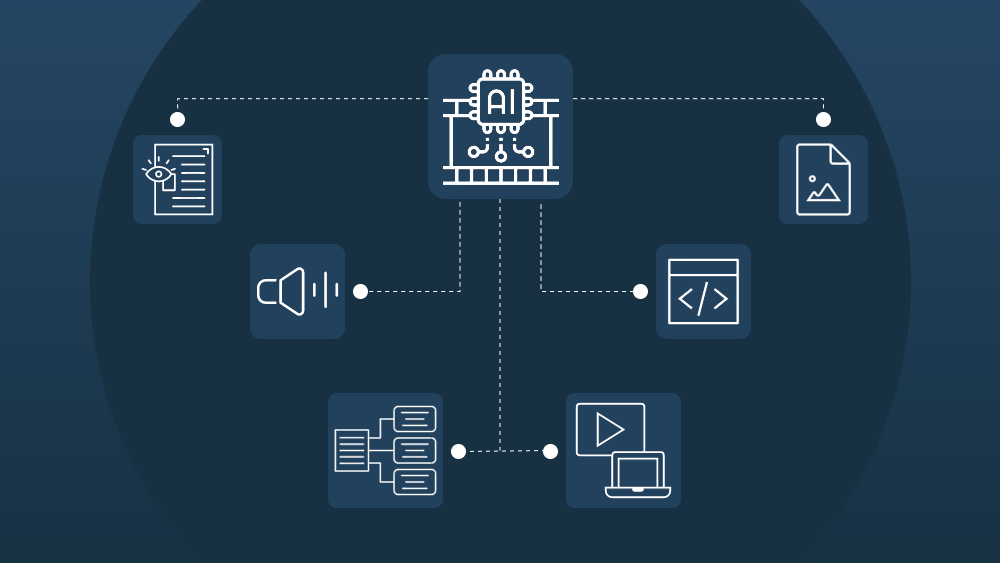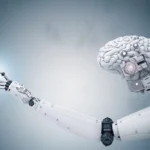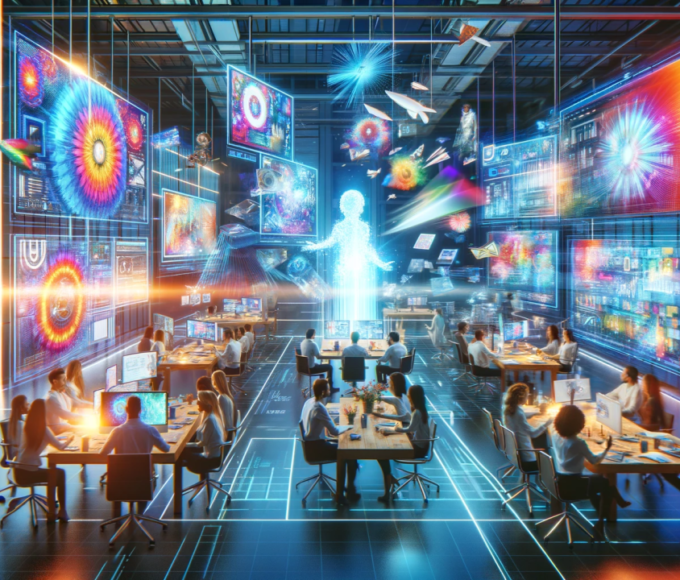We have witnessed remarkable advancements in the field of artificial intelligence (AI). This has led to breakthrough technologies that have transformed various industries. Among these, generative AI stands out as a powerful tool that has captivated researchers, artists, and technologists alike. Harnessing the potential of deep learning models, generative AI has the ability to create, innovate, and inspire in ways previously unimaginable.
Applications:
Generative AI refers to the branch of artificial intelligence that focuses on generating content, such as images, music, text, and even entire virtual worlds, that possesses a level of creativity and originality. Unlike traditional AI systems that rely on predefined rules and datasets, generative AI uses sophisticated algorithms, often based on deep learning techniques, to learn from existing data and generate new, unique content.
- Art and Design: Generative AI has revolutionized the field of art and design, enabling artists to explore new frontiers of creativity. Through the use of deep neural networks, generative models can create stunning visual artworks, unique fashion designs, and even generate immersive virtual reality experiences.
- Content Creation: Content creators across various domains have found generative AI to be an invaluable tool. From generating personalized recommendations for users based on their preferences to automatically generating news articles, product descriptions, and social media posts, generative AI has streamlined content creation processes and enhanced user experiences.
- Gaming and Entertainment: Generative AI has had a profound impact on the gaming and entertainment industry. Game developers can leverage generative models to create realistic virtual worlds, intelligent non-player characters (NPCs), and dynamic narratives that adapt to players’ actions. This results in more immersive and engaging gaming experiences.
- Medicine and Drug Discovery: In the healthcare sector, generative AI has shown promising potential in areas such as medical image analysis, disease diagnosis, and drug discovery. It can generate synthetic medical images for training AI models, and assist in identifying patterns in medical data. It can even propose novel molecules with potential therapeutic properties.
Challenges:
While generative AI holds immense promise, it also presents certain challenges and ethical considerations that must be addressed. Some of these include:
- Data Bias: Heavily relying on the data they are trained on, generative models may exhibit the same biases or inaccuracies if the training data is biased or incomplete.
- Intellectual Property: As generative AI models produce content, concerns arise regarding ownership, copyright, and intellectual property rights. Determining the boundaries of originality and attribution becomes a complex task.
- Misuse and Deepfakes: Generative AI can be misused to create deceptive or malicious content, such as deepfake videos. This raises concerns regarding privacy, misinformation, and the potential for societal harm.
- AI Creativity: Debates surrounding the nature of AI-generated content and whether it can truly be considered “creative” continues to spark discussion among communities.
Startups Harnessing Generative AI in India:
India’s startup ecosystem has been quick to embrace generative AI, and several companies are spearheading the use of this technology. Some startups in this domain are:
Artivatic: Artivatic leverages generative AI to personalize financial services and insurance solutions. By analyzing user data, the company’s algorithms generate tailored insurance plans, investment portfolios, and risk assessments.
Staqu: Staqu focuses on computer vision and natural language processing powered by generative AI. They have developed a range of AI-powered solutions, including AI-enabled video analytics for surveillance, automatic language translation, etc.
Mad Street Den: Mad Street Den has developed a generative AI platform called Vue.ai, which revolutionizes the retail industry. The platform utilizes computer vision and deep learning to offer personalized shopping experiences, virtual try-on solutions, and automated visual merchandising.
Absentia: Absentia specializes in the application of generative AI in the fields of augmented reality (AR) and virtual reality (VR). The startup’s proprietary platform, Norah AI, enables the generation of realistic VR/AR environments and objects, transforming industries such as architecture, automotive design, and training simulations.
Generative AI represents a groundbreaking leap in technology, pushing the boundaries of what machines can create. It is transforming numerous industries, opening up new possibilities for innovation and creativity. However, as with any powerful tool, it is crucial to address the challenges and ethical concerns that arise.
By navigating these complexities with care and responsibility, we can harness the true potential of generative AI and unlock a world where machines and human creativity converge to shape a brighter future.
















2 Comments